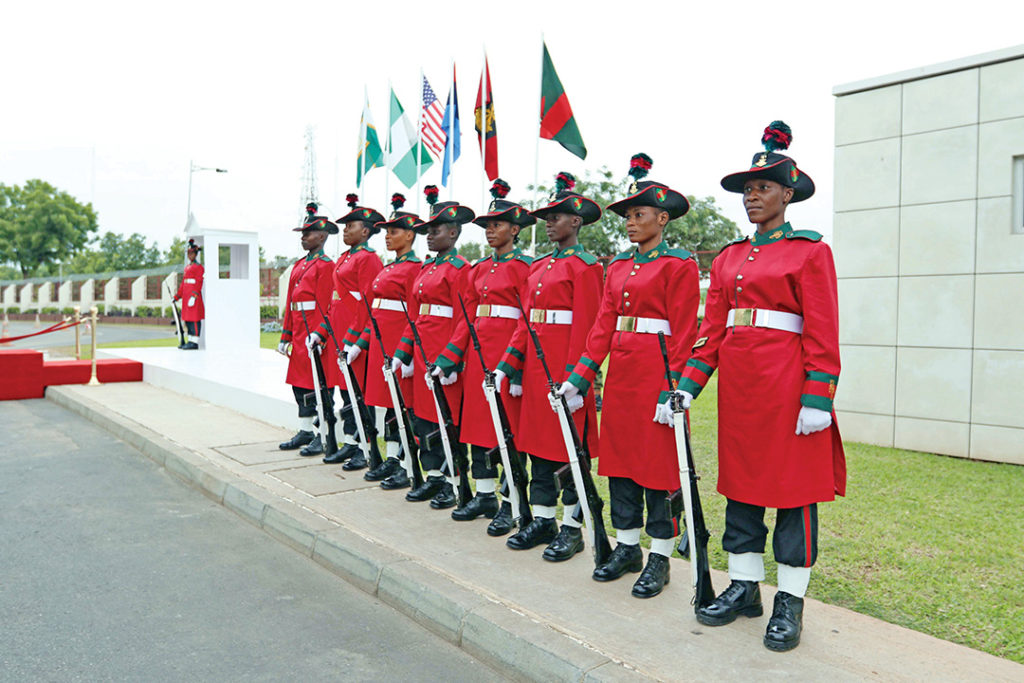At the African Land Forces Summit, Commanders Share Stories, Build Partnerships
ADF STAFF
photos by U.S. ARMY AFRICA
On day two of the African Land Forces Summit (ALFS) in Abuja, Nigeria, moderator Dr. Monde Muyangwa asked for a bit of indulgence from the Army commanders in attendance. She wanted to tell the story of an 11-year-old girl growing up in Zambia. The girl stood on the roadside and watched trucks roll by filled with the bodies of war victims. The girl saw her aunt cradle the remains of her children after the family’s home was bombed.
That girl, she said, spent much of the rest of her life fearing the armed forces. That girl, she said, was her.
“For 20 years I sat there unable to get over that and do anything with the military,” she told the crowd. “I wanted nothing to do with the military.”
Her story had a particular significance for the assembled commanders from 40 African countries. It was a reminder that the highest duty of the armed forces is to protect civilians. It also was a reminder that militaries around the world need to do better in this regard.
“When the damage has been done, bridging that trust with the people requires a lot of work on your parts,” Muyangwa said. “We recognize the important role that you play, we recognize that you wield the tools of violence on behalf of the state to protect the civilians. For me, this issue of protecting the civilians is central to your mission.”
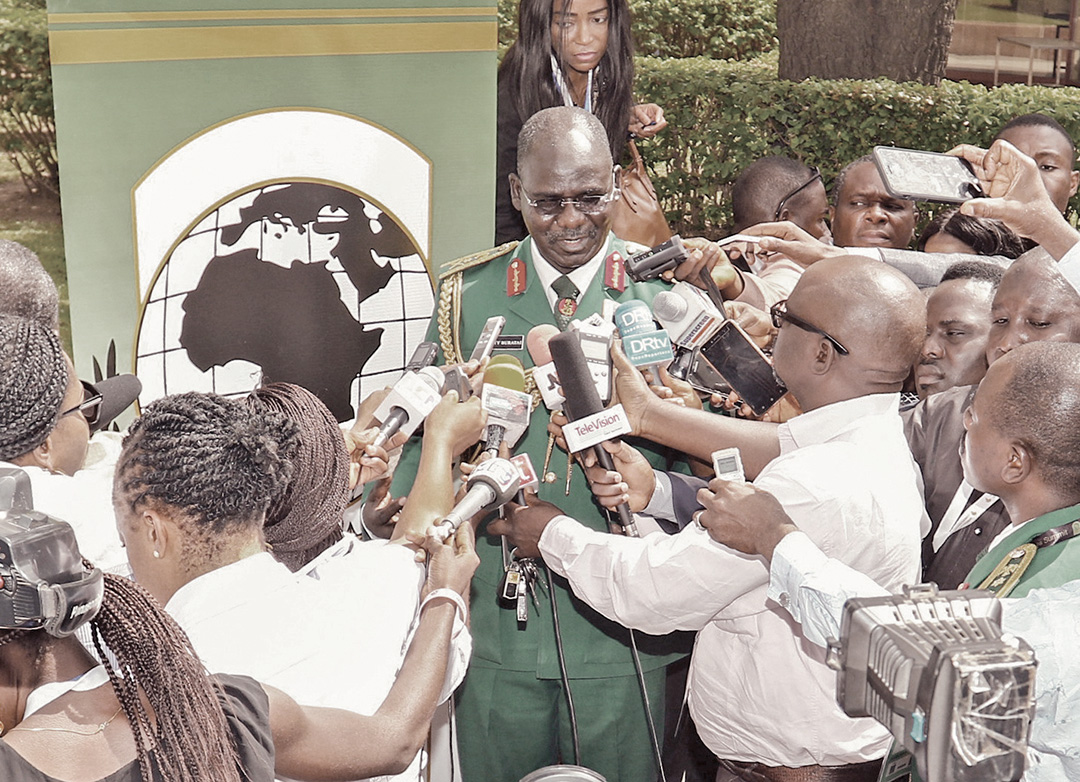
These types of frank, open conversations filled the four-day summit, the largest annual gathering of senior military leaders on the African continent. Co-sponsored by U.S. Army Africa and the Nigerian Army, the summit’s theme was “Unity is strength,” and it offered a rare venue for military leaders to speak freely about their successes, challenges and shortcomings. It was a place to forge new alliances and strengthen old ones.
Lt. Gen. Tukur Yusuf Buratai of Nigeria, chief of Army staff and co-host of the event, told his fellow officers that the collaboration in the room would have “ripple effects across the globe.” “I want to emphasize that our collective action and inaction will have an impact,” Buratai said. Presenters took the mission to heart.
Lt. Gen. Robert Kibochi, commander of the Kenya Army, outlined the ways that the African Union Mission in Somalia (AMISOM) seeks to win the trust of civilians by providing security for humanitarian aid, offering safe corridors for people fleeing conflict, and reaching out to traditional clan leaders. AMISOM also is teaching troops cultural practices and training on matters such as the code of conduct. “The overall success of any mission of this nature must be centered on the population, and the isolation of the population from the insurgents is critically important,” Kibochi said.
Buratai gave an update on Nigeria’s efforts to defeat the Boko Haram insurgency in the northeast. He conceded that the military was hampered early by accusations of heavy-handed tactics and violence against civilians. He outlined Nigeria’s work to rectify this through civil-military operations, the creation of a human rights desk, and by setting up a hotline, 193, that civilians can call with complaints or concerns. Today, he said, all allegations of human rights abuses are investigated and, if proven true, offenders are court-martialed.
“Civilians are more accepting; they are very much more appreciative of the military’s efforts in the northeast,” Buratai said. “Our efforts are ensuring that human rights are complied with, and this is enshrined in our various rules of engagement.”
The event included a military demonstration in which members of Nigeria’s special forces showed off skills honed in the battle against Boko Haram. In a simulated attack, a mobile strike team, which included commandos rappelling from helicopters and on motorcycles, rescued hostages trapped inside a compound.
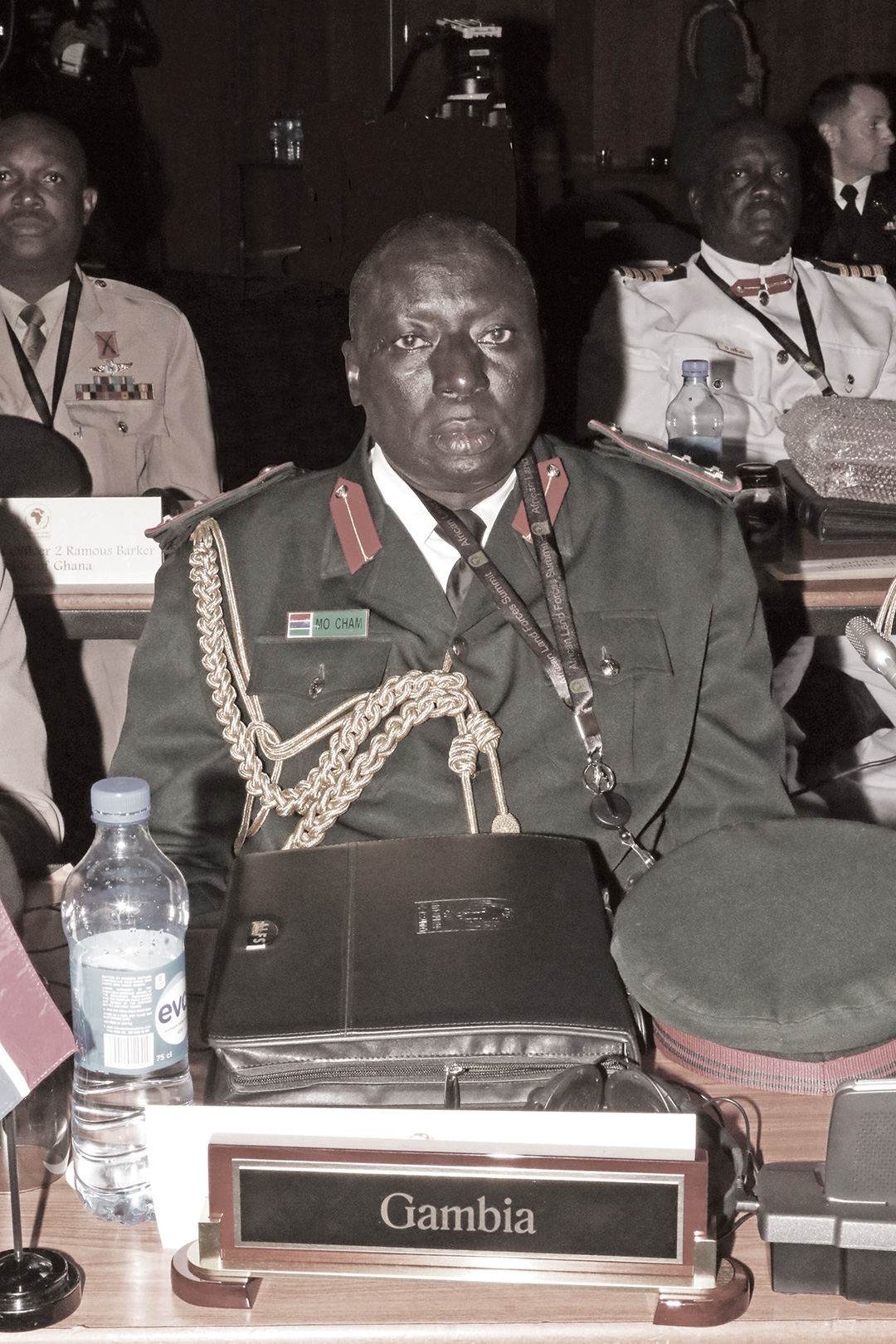
The Nigerian Army, Buratai said, has developed new tactics to counter Boko Haram’s asymmetric methods. The mobile strike teams, introduced in 2017, can be deployed rapidly to reinforce a location or to pursue fleeing terrorists. “In a nutshell, the mobile brigade concept, which has been employed along with other Nigerian Army doctrines, tactics, techniques and procedures, has contributed significantly to the successes achieved in our counterinsurgency operations in the northeast,” he said.
Above all, ALFS was about the exchange of ideas. The summit held moderated breakout sessions in which commanders spoke about issues of common concern and exchanged best practices. “It started off fast and seemed to gain momentum throughout the week,” Brig. Gen. Eugene J. LeBoeuf, commander of U.S. Army Africa, said of the robust discussion.
In the end, multiple participants expressed a sense of unity and optimism. “Africa as a continent is faced with a lot of challenges, but Africa as a continent is not poor,” said Maj. Gen. Sam Kavuma of Uganda. “We have the resources to address these challenges; what is missing is a collective effort in finding solutions.”
The Gambia: A New Era
It was the first chance for Brig. Gen. Mamat O. Cham, commander of the Gambian National Army, to attend ALFS since being named to the position in January 2017. That year, after a disputed election, the country saw its first democratic transition of power in more than 22 years.
During the postelection crisis, there was some pressure on the military to intervene, Cham said, but it steadfastly stayed out of the political process. Whispers of a coup d’etat never became anything more serious. The transition was bloodless. “The senior leaders at that time came together and realized there was no cause for fighting to perpetuate a dictatorship,” Cham said.
Now, the Gambian National Army is going through security sector reform, trying to reduce its numbers and inculcate professionalism in training. Cham took the opportunity at ALFS to speak to his colleagues from countries like Liberia and Sierra Leone that have experienced similar rebuilding periods. “We can learn from their experience how to move from a crisis to a democratic setting with the proper reforms and structures in place for a professional military force,” he said.
Cham also was heartened in his conversations with fellow commanders to hear that professionalism is here to stay on the continent. “The era of military rule in Africa is over,” he said, “and anybody who comes to the armed forces should come with the mindset to serve the people and not to lord it over them.”
Above all, he drew lessons from examples of the best militaries in which Soldiers from cadets to generals are trained to believe that being part of the armed forces is much bigger than oneself. Cham is trying to instill that same ethos in The Gambia. “Over the year or so that we have been in place, we have tried to drive the message home,” he said. “The governance of the armed forces is important. You come to the profession to serve and not to usurp power.”
Liberia: From Warring Factions to Peacekeepers
For Maj. Gen. Prince Johnson III of Liberia, the fact that his country was at the summit at all was cause for celebration. After more than a decade of civil war, the Armed Forces of Liberia (AFL) has been rebuilt and is now working to change its image in the eyes of the public.
“If you look at Liberia, where we come from, after 15 years of civil war, a military that was considered a warring faction, a military that was dissolved because of the role they played in the civil war,” said Johnson, the AFL chief of staff. “And then we started a new military that I’m part of. … We got the people to take away that perception.”
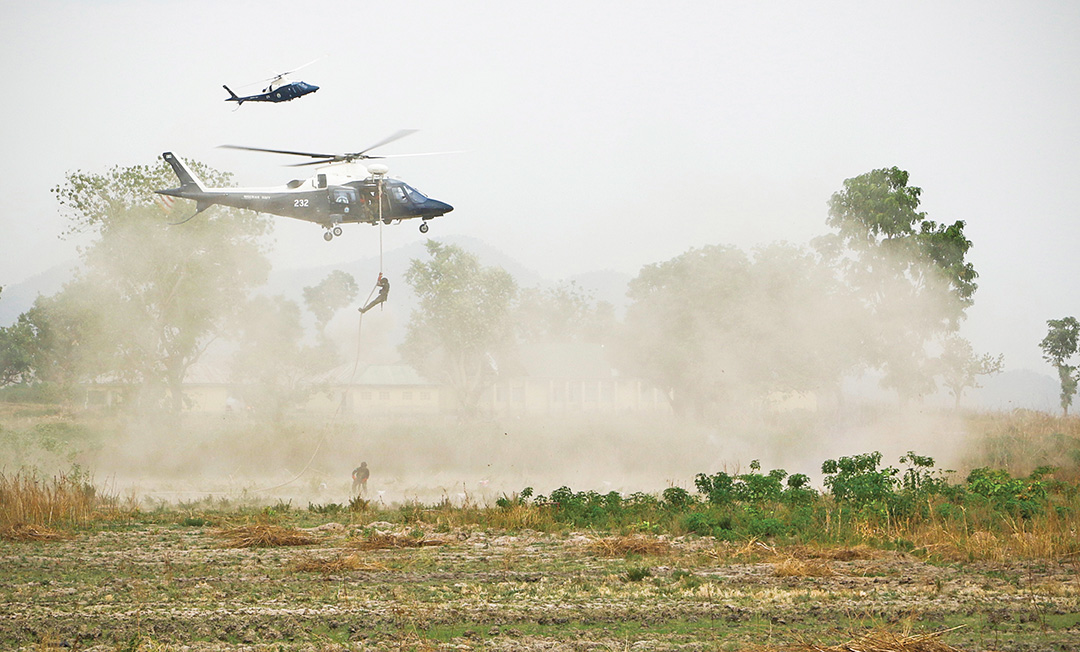
Part of that new perception has come recently. After taking over security responsibilities in the country from the United Nations, the AFL provided security during a free and fair election in 2017. In recent years the nation has also sent peacekeepers to Mali, something that would have been unimaginable during Liberia’s civil war.
“Coming from a warring faction, now to be a peacekeeper. That’s a sense of pride,” Johnson said.
At ALFS, Johnson said he was most interested to speak with other commanders about the concept of human security and examining what role the military should play in providing basic necessities like water and health care to the population, especially people living in rural areas. During the country’s Ebola outbreak, the AFL Engineer Battalion worked with foreign partners to build 17 medical treatment centers.
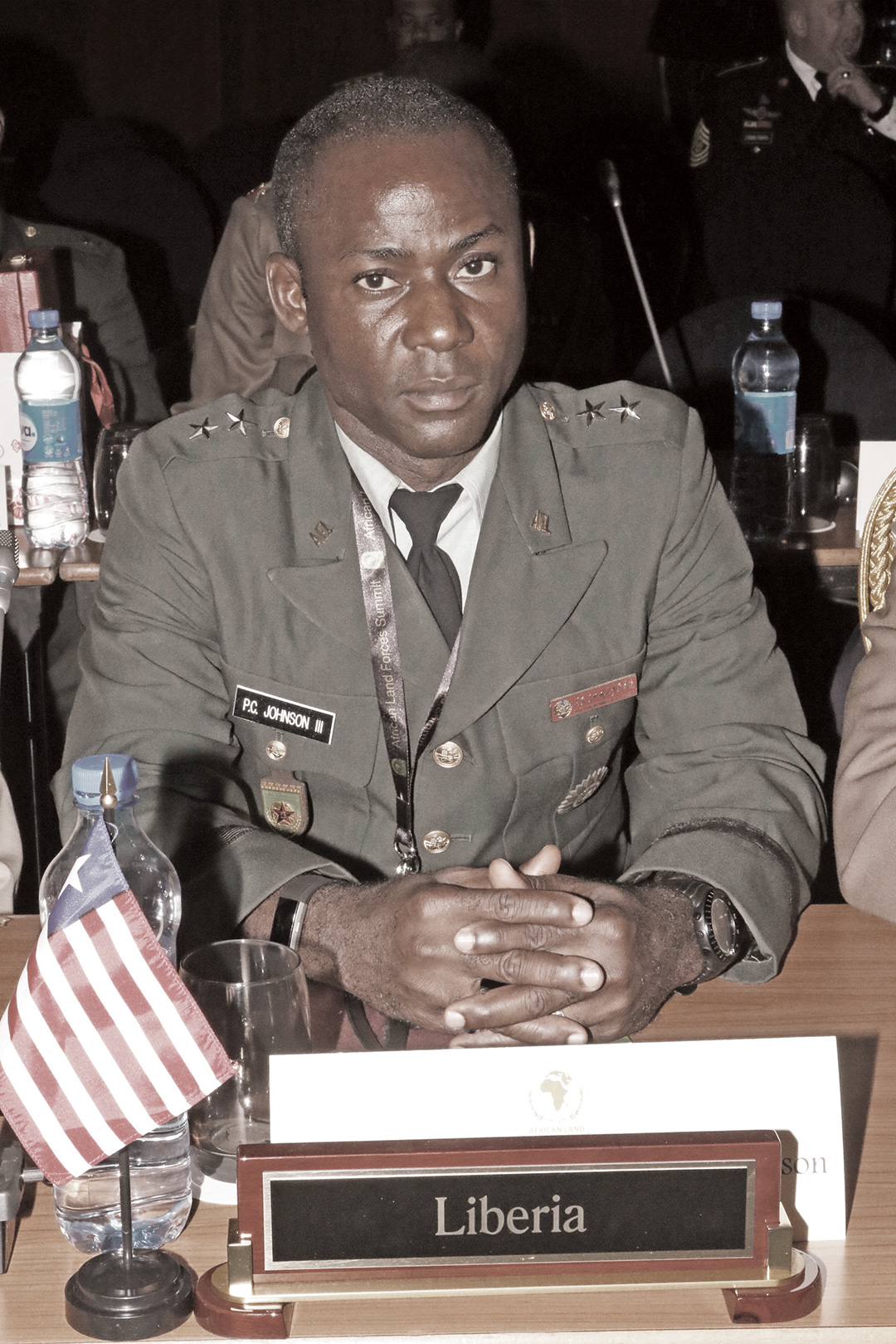
“Our own people back home now see us as a force for good, a force that is providing those basic necessities,” Johnson said.
Burkina Faso: Reinforcing a Budding Alliance
In the Sahel, building alliances is an urgent priority. The region is facing a threat from multiple extremist groups, including Ansaroul Islam and radicalized ISIS fighters returning from the Middle East.
Col.-Maj. Léon Traoré, the chief of Army staff in Burkina Faso, played a role in the planning of the new G5 Sahel Joint Force alliance that includes five Sahelian countries. Although the G5 force is not fully operational, Burkina Faso now has troops deployed along its borders with Mali and Niger and is working closely with those two countries.
“It doesn’t have to supplant our national efforts –– it will complement our national efforts,” Traoré said of the G5 force. “And in this sense, I think that it will permit all the countries of the G5 Sahel to reinforce their cooperation –– to see what we can do well alone and what we can do better together to improve our capacity for response.”
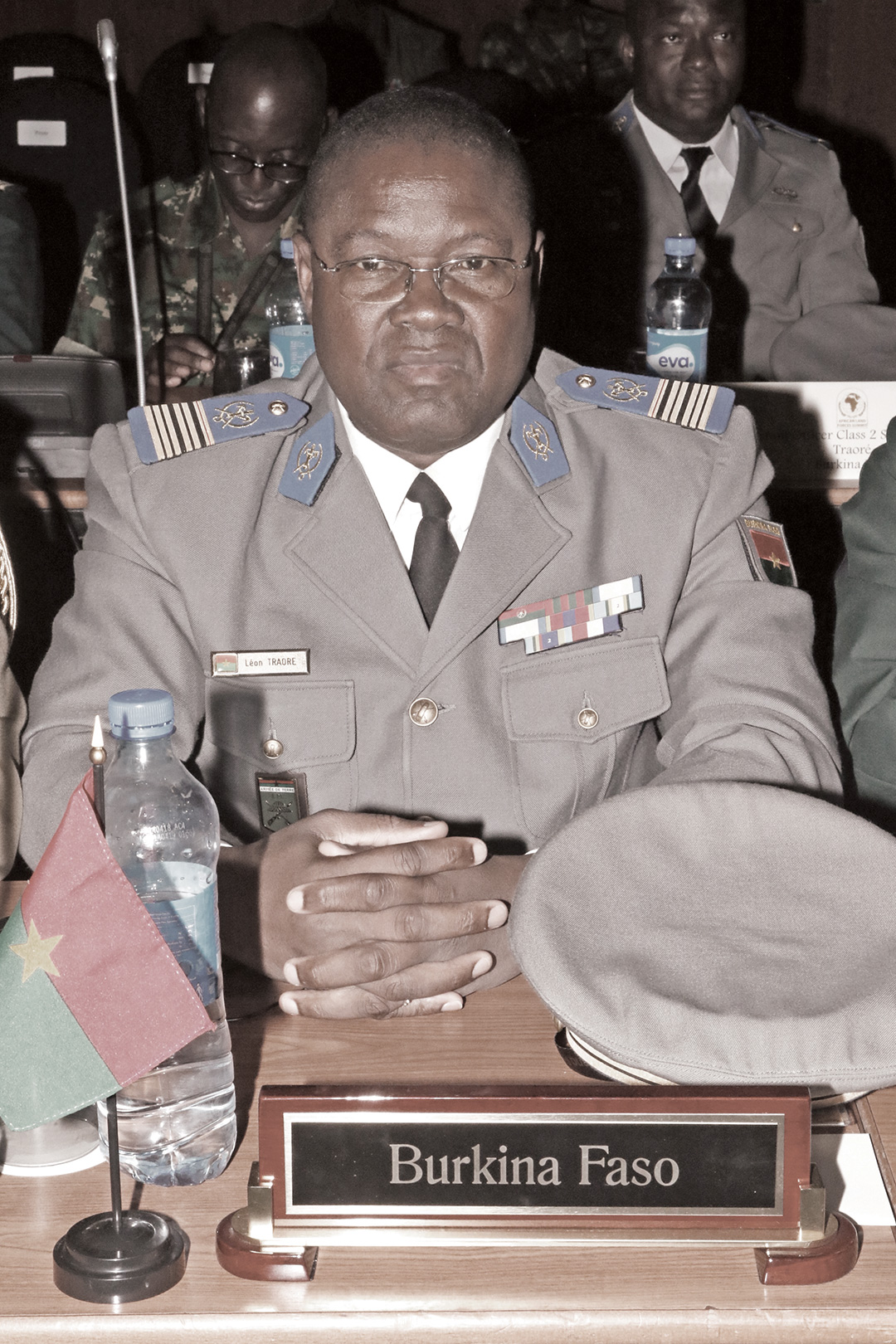
Although he has attended formal meetings of the regional defense chiefs, ALFS offered a more relaxed setting for Traoré to build a relationship with his neighboring countries. “I have met the chief of the army staff of Benin, of Mali, of Niger. We are neighboring countries, but it’s not often that we have the chance to meet,” Traoré said. “This forum is an opportunity to see each other, speak more directly about what concerns us and, in a larger manner, it’s about listening and drawing lessons from the experiences of other countries.”
Traoré said he appreciated the opportunity to hear from military officers from other countries and learn how they are battling extremism. “We appreciated hearing the experience of Nigeria in the fight against Boko Haram, because we have a group in our country linked, a bit, to Boko Haram,” he said. “We also saw the experience in the Horn of Africa battling al-Shabaab. I think that we will really take something away from this meeting.”

